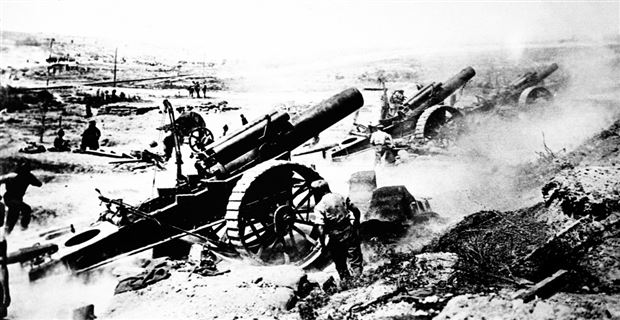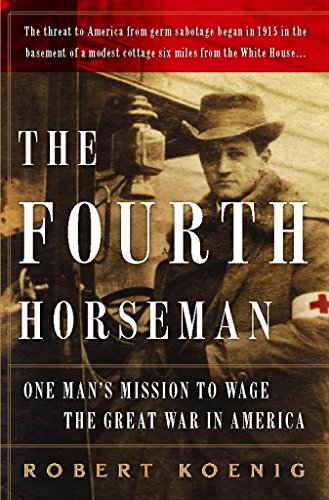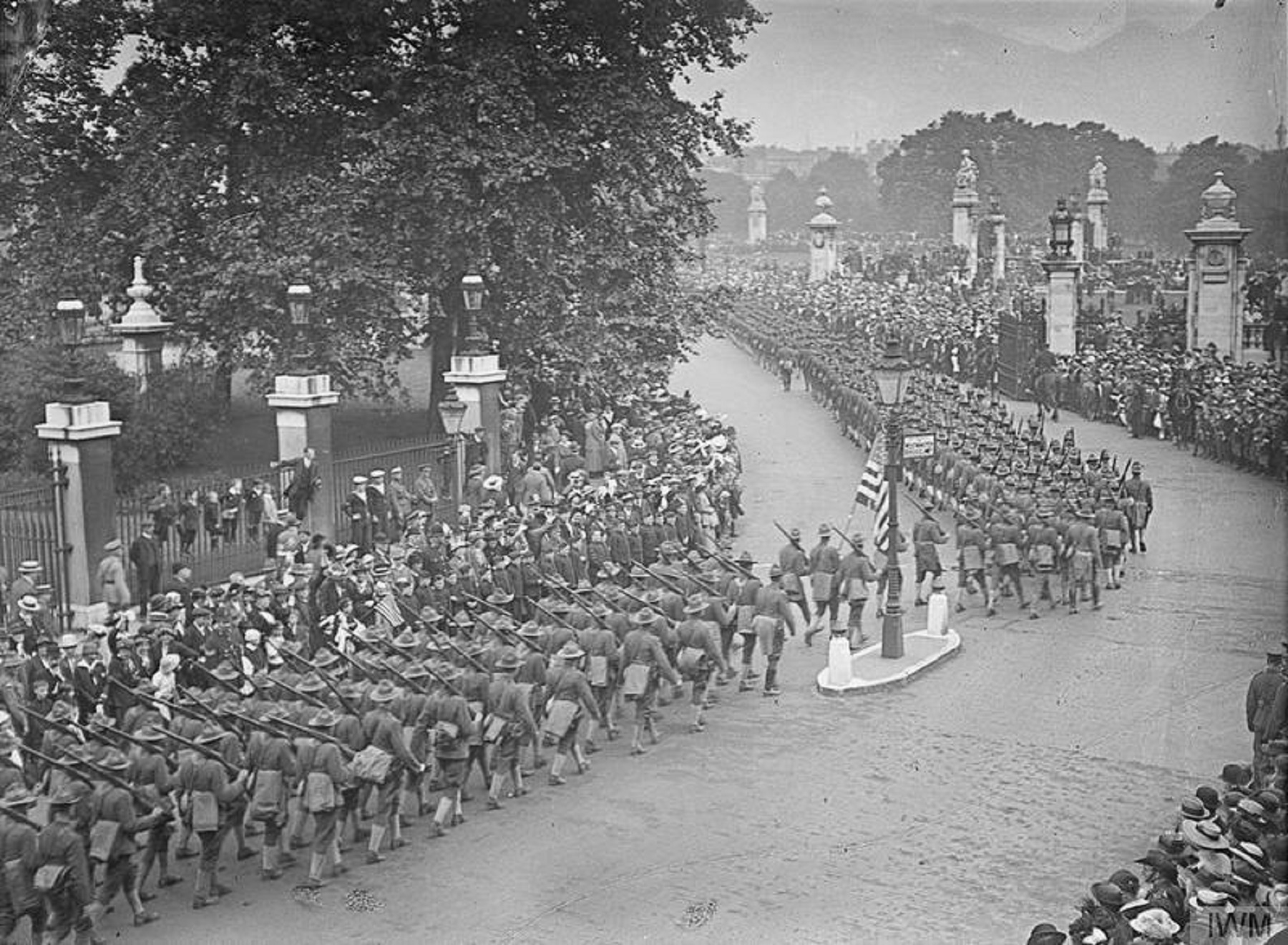MULTIZ321
TUG Member
- Joined
- Jun 6, 2005
- Messages
- 31,372
- Reaction score
- 9,023
- Points
- 1,048
- Location
- FT. LAUDERDALE, FL
- Resorts Owned
-
BLUEWATER BY SPINNAKER HHI
ROYAL HOLIDAY CLUB RHC (POINTS)
Lost World War I History: Mexico Nearly Invaded America in 1917
By Michael Peck/ Military/ Warrior/ scout.com
"It was one hundred years ago when Mexico almost invaded the United States.
In January 1917, German foreign secretary Arthur Zimmermann dispatched a coded telegram to Heinrich von Eckardt, the German ambassador to Mexico. With Germany locked in bloody stalemate with the Allies in France, and Britain’s naval blockade strangling the German economy, Kaiser Wilhelm’s government was about to make a fateful decision: declare unrestricted submarine warfare, which would allow U-boats to sink merchant ships on sight.
That also meant sinking the ships of neutral powers, most especially the United States, which would likely respond by declaring war on Germany. But Zimmermann had instructions for his ambassador: “We make Mexico a proposal of alliance on the following basis: make war together, make peace together, generous financial support and an understanding on our part that Mexico is to reconquer the lost territory in Texas, New Mexico, and Arizona.”
This was the famous Zimmermann Telegram. Decoded by the British, who passed it on to the Americans, it became a justification—along with unrestricted submarine warfare—for the U.S. declaration of war on Germany in April 1917...."

(Photo: Wikimedia commons, 247Sports)
For those interested in learning more about this chapter in American History, a very interesting read is " The Fourth Horseman: One Man's Mission to Wage The Great War in America" by Robert Koening

"The story of Anton Dilger brings to life a missing chapter in U.S. history and shows, dramatically, that the Great European War was in fact being fought on the home front years before we formally joined it. The doctor who grew anthrax and other bacteria in that rented house was an American—the son of a Medal of Honor winner who fought at Gettysburg—on a secret mission, for the German Army in 1915. The Fourth Horseman tells the startling story of that mission led by a brilliant but conflicted surgeon who became one of Germany's most daring spies and saboteurs during World War I and who not only pioneered biowarfare in his native land but also lead a last-ditch German effort to goad Mexico into invading the United States. It is a story of mysterious missions, divided loyalties, and a new and terrible kind of warfare that emerged as America—in spite of fierce dissention at home—was making the decision to send its Doughboys to the Great War in Europe.
This story has never been told before in full. And Dilger is a fascinating analog for our own troubled times. Having thrown off the tethers of obligation to family and country, he became a very dangerous man indeed: A spy, a saboteur, and a zealot to a degree that may have so embarrassed the German High Command that, after the war, they ordered his death rather than admit that he worked for them."
Richard
By Michael Peck/ Military/ Warrior/ scout.com
"It was one hundred years ago when Mexico almost invaded the United States.
In January 1917, German foreign secretary Arthur Zimmermann dispatched a coded telegram to Heinrich von Eckardt, the German ambassador to Mexico. With Germany locked in bloody stalemate with the Allies in France, and Britain’s naval blockade strangling the German economy, Kaiser Wilhelm’s government was about to make a fateful decision: declare unrestricted submarine warfare, which would allow U-boats to sink merchant ships on sight.
That also meant sinking the ships of neutral powers, most especially the United States, which would likely respond by declaring war on Germany. But Zimmermann had instructions for his ambassador: “We make Mexico a proposal of alliance on the following basis: make war together, make peace together, generous financial support and an understanding on our part that Mexico is to reconquer the lost territory in Texas, New Mexico, and Arizona.”
This was the famous Zimmermann Telegram. Decoded by the British, who passed it on to the Americans, it became a justification—along with unrestricted submarine warfare—for the U.S. declaration of war on Germany in April 1917...."

(Photo: Wikimedia commons, 247Sports)
For those interested in learning more about this chapter in American History, a very interesting read is " The Fourth Horseman: One Man's Mission to Wage The Great War in America" by Robert Koening

"The story of Anton Dilger brings to life a missing chapter in U.S. history and shows, dramatically, that the Great European War was in fact being fought on the home front years before we formally joined it. The doctor who grew anthrax and other bacteria in that rented house was an American—the son of a Medal of Honor winner who fought at Gettysburg—on a secret mission, for the German Army in 1915. The Fourth Horseman tells the startling story of that mission led by a brilliant but conflicted surgeon who became one of Germany's most daring spies and saboteurs during World War I and who not only pioneered biowarfare in his native land but also lead a last-ditch German effort to goad Mexico into invading the United States. It is a story of mysterious missions, divided loyalties, and a new and terrible kind of warfare that emerged as America—in spite of fierce dissention at home—was making the decision to send its Doughboys to the Great War in Europe.
This story has never been told before in full. And Dilger is a fascinating analog for our own troubled times. Having thrown off the tethers of obligation to family and country, he became a very dangerous man indeed: A spy, a saboteur, and a zealot to a degree that may have so embarrassed the German High Command that, after the war, they ordered his death rather than admit that he worked for them."
Richard

